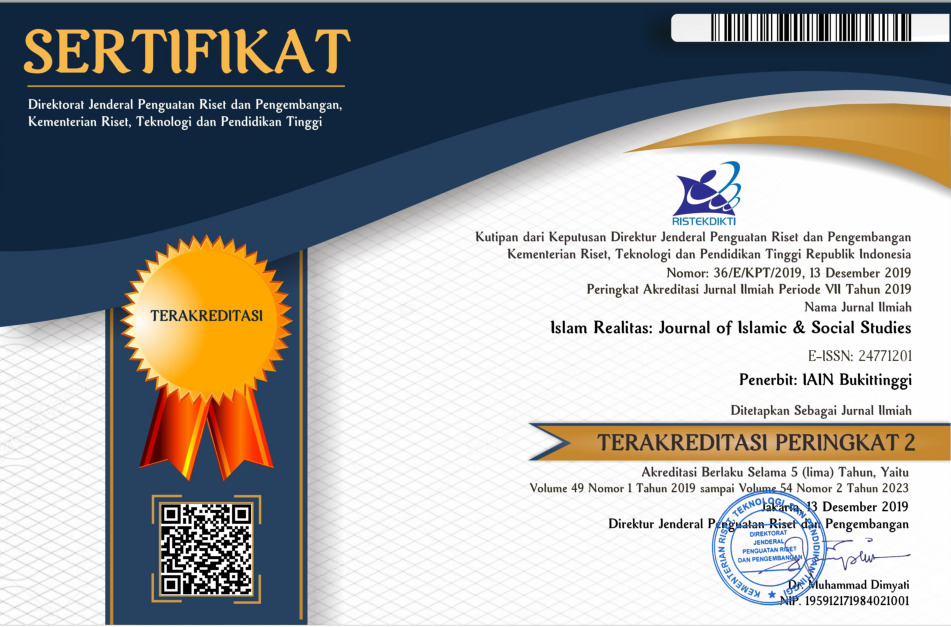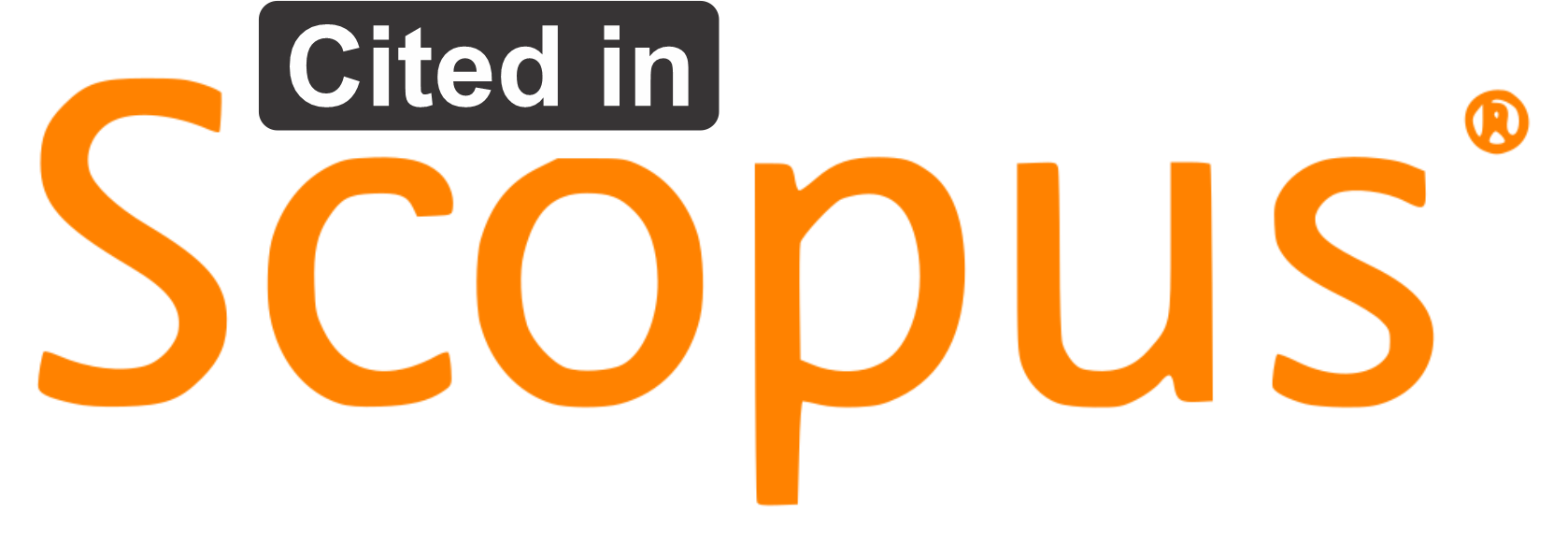Exploring the Evolution of Waqf Laws and Contemporary Practices in Muslim Countries
Downloads
Muslim countries. Throughout Islamic history's trajectory, waqf has served as a crucial element in the advancement of Islamic civilization. It has substantially contributed to religious, social, educational, economic, and community progress. To ensure the effective preservation and management of waqf assets, the presence of a robust waqf law that serves as a guiding framework is indispensable. In modern times, the legislation pertaining to waqf in Muslim countries has undergone significant evolution and enhancement. However, waqf laws in Muslim countries are subject to change. This paper employed a qualitative research method using secondary data to analyze the evolution and contemporary practices of waqf laws in Muslim countries. The result of this study found that waqf laws in Muslim countries have experienced multiple reforms, with the number of changes varying across different nations. Reforms in waqf laws across Muslim countries demonstrate ongoing efforts to enhance the legal frameworks governing waqf management and administration, addressing the evolving needs and challenges associated with waqf properties. These reforms aim to ensure efficient utilization and management of waqf assets for the betterment of society.
Books
Jafar-Shaghaghi, Kayhan, ‘The Development of the Legal Parameters of the Waqf Institution in Contemporary Iran and Its Socioeconomic Impact.’ (The University of St Andrews, 2014)
McChesney, Robert D, ‘Waqf in Central Asia’, in Waqf in Central Asia, Four Hundred Years in the History of a Muslim Shrine, 1480-1889 (Princeton University Press, 1991)
Nejima, Susumu, ‘Evolution of a Waqf-Based NGO Hamdard Foundation in Pakistan’, in NGOs in the Muslim World, ed. by Susumu Nejima, 1st edn (London: Routledge, 2015), pp. 29–46 <https://doi.org/10.4324/9781315690582>
Sabra, Adam, Poverty and Charity in Medieval Islam: Mamluk Egypt, 1250-1517 (Cambridge University Press, 2000)
Journals
Abbasi, Zubair, ‘Waqf in Pakistan: Rebirth of a Traditional Institution’, Available at SSRN 3327092, 2019
Ahmad, Mahadi, Syed Rashid Khalid, Uzaima Ibrahim, and Umar Oseni A, ‘The Legal and Regulatory Framework for Zakah and Waqf Administration in Kuwait : Lessons for Nigerian Zakah and Waqf Institutions’, International Journal of Business, Economics, and Law, 7.4 (2015), 114–27
Bonine, M. E., ‘Islam and Commerce: Waqf and the Bazaar of Yazd, Iran’, Erdkunde, 41.3 (1987), 182–96 <https://doi.org/10.3112/erdkunde.1987.03.02>
Elasrag, Hussein, ‘Towards a New Role of the Institution of Waqf’, SSRN Electronic Journal, 2017, 1–27 <https://doi.org/10.2139/ssrn.3011290>
Faturohman, Taufik, Muammar Farras, Ar Rasyid, Raden Aswin Rahadi, Asep Darmansyah, and Kurnia Fajar Afgani, ‘The Potential Role of Islamic Social Finance in the Time of COVID-19 Pandemic’, Review of Integrative Business and Economics Research, 10.1 (2021), 95–105 <http://buscompress.com/uploads/3/4/9/8/34980536/riber_10-s1_10_u20-063_95-105.pdf>
Hassan, M. Kabir, Mohd Fazlul Karim, and M. Sydul Karim, ‘Experiences and Lessons of Cash Waqf in Bangladesh and Other Countries’, in Revitalization of Waqf for Socio-Economic Development (Palgrave Macmillan, Cham, 2019) <https://doi.org/https://doi.org/10.1007/978-3-030-18445-2_5>
Ilham, Zati, Abdul Manaf, Khadijah Mohd Najid, Muhammad Amrullah, Drs Nasrul, and Najhan Muhamad Ibrahim, ‘Optimising Waqf Law for Effective Administration: A Comparative Analysis of the Trustee Act 1949 and State Waqf Enactments’, IIUM LAW JOURNAL, 31.1 (2023), 235–60
Iman, Abdul Hamid Mar, and Mohammad Tahir Sabit Haji Mohammad, ‘Waqf as a Framework for Entrepreneurship’, Humanomics, 33.4 (2017), 419–40 <https://doi.org/10.1108/H-01-2017-0015>
Itang, Itang, and Iik Syakhabyatin, ‘Sejarah Wakaf Di Indonesia’, Tazkiya, 18.02 (2017), 220–37
Kahf, M., ‘The Role of Waqf in Improving the Ummah Welfare’, in The International Seminar on “Waqf as a Private Legal Bodyâ€, 2003 <https://doi.org/10.1108/IMEFM-08-2013-0094>
Khalil, Ibrahim Ahmed, Yunus Ali, and Mohammad Shaiban, ‘Waqf Fund Management in Kuwait And Egypt: Can Malaysia Learns from Their Experiences’, in International Conference on Masjid, Zakat and Waqf (IMAF 2014), 2014, pp. 69–83 <http://www.kuis.edu.my/i-maf2014/eproceedings/wakaf/W07 Ibrahim Khalil Waqaf 69-83.pdf>
Malik, S. Jamal, ‘Waqf in Pakistan: Change in Traditional Institutions’, Die Welt Des Islams, 1.4 (1990), 64–65
Manaf, Zati Ilham Abdul, ‘Resolution of Waqf Land Disputes: The Relevance of a Waqf Tribunal’, International Conference on Dispute Resolution 2017, November, 2017
Rahman, Asmak Ab, ‘Peranan Wakaf Dalam Pembangunan Ekonomi Umat Islam Dan Aplikasinya Di Malaysia’, Shariah Journal, 17.1 (2009), 113–52
Sadr, Seyed Kazem, and Amirhossein Karbalaei, ‘A Comparative Study of Waqf Properties Development in Iran and Malaysia’, in MUKTAMAR WAQF IQLIMI III (Central Mosque, Songla, Thailand, 2016), pp. 1–27
Sanusi, Soliha, and Muhammad Hakimi Mohd Shafiai, ‘The Management of Cash Waqf: Toward Socio-Economic Development of Muslims in Malaysia’, Jurnal Pengurusan, 43.June (2015), 3–12 <https://doi.org/10.17576/2015-43-01>
Shafii, Zurina, Zamir Iqbal, and Mustafa Tasdemir, ‘Governance Regulatory Framework for Waqf in Selected Countries’, World Bank Global Islamic Finance Development Centre, Borsa Istanbul (Istanbul, 2015), pp. 1–41 <http://www.tkbb.org.tr/Documents/Yonetmelikler/Governance-Regulatory-Framework-for-Waqf-in-Selected-Countries-Zurina-Shafii-Zamir-Iqbal-Mustafa-Tasdemir-2015.pdf>
Siska, Siska, ‘Pengelolaan Wakaf Produktif Di Kuwait Pembelajaran Bagi Pengembangan Wakaf Di Indonesia’, Jurnal Ekonomi KIAT, 30.1 (2019), 1–11
Susanto, Heru, ‘Sejarah Perkembangan Perundang-Undangan Wakaf Di Indonesia’, Bilancia: Jurnal Studi Ilmu Syariah Dan Hukum, 10.2 (2016), 59–90
Suwaidi, Ahmad, ‘Wakaf Dan Penerapannya Di Negara Muslim’, Economic: Jurnal Ekonomi Dan Hukum Islam, 1.2 (2011), 367–68
White, Andrew, ‘The Role of the Islamic Waqf in Strengthening South Asian Civil Society: Pakistan as Case Study’, Internationall Journal of Civil. Society Law, 4.2 (2006), 26–27
Thesis and Dissertation
Abdul-Karim, Shamsiah, ‘Contemporary Shari’ah Structuring for the Development and Management of Waqf Assets in Singapore’ {unpublished doctoral thesis, Durham University, 2010}
Jafar-Shaghaghi, Kayhan, ‘The Development of the Legal Parameters of the Waqf Institution in Contemporary Iran and Its Socioeconomic Impact.’ {unpublished doctoral thesis, The University of St Andrews, 2014}
Online Resources
Auqaf and Religious Affairs Government of the Punjab, ‘Social and Services’, Punjab Information Technology Board, 2023 <https://auqaf.punjab.gov.pk/services> [accessed June 8 2023]
Fathonah, Siti, ‘Praktik Wakaf Produktif Untuk Masyarakat’, Badan Wakaf Indonesia, 2021, p. 1 <https://www.bwi.go.id/6014/2021/02/17/praktik-wakaf-produktif-untuk-masyarakat/> [accessed 8 June 2023]
General Authority Awqf, Laporan Tahunan 2020, 2020 <https://www.awqaf.gov.sa/index.php/en/media-center/yearly-reports>
General Authority of Awqaf Saudi Arabia, ‘Rules and Regulations’, General Authority of Awqaf Saudi Arabia, 2023 <https://www.awqaf.gov.sa/en/Regulations?field_category_target_id=35> [accessed June 8 2023]
Jabatan Wakaf Zakat dan Haji, Laporan Tahunan JAWHAR 2007 (Malaysia, 2008)
KAPF, ‘Development of Waqf’, Kuwait Awqaf Public Foundation, 2023 <https://www.awqaf.org.kw/EN/Pages/DevelopmentOfWaqf.aspx> [accessed 6 June 2023]
Authors who publish with this journal agree to the following terms:
- Authors retain copyright and grant the journal right of first publication with the work simultaneously licensed under a Creative Commons Attribution License that allows others to share the work with an acknowledgment of the work's authorship and initial publication in this journal.
- Authors are able to enter into separate, additional contractual arrangements for the non-exclusive distribution of the journal's published version of the work (e.g., post it to an institutional repository or publish it in a book), with an acknowledgment of its initial publication in this journal.
- Authors are permitted and encouraged to post their work online (e.g., in institutional repositories or on their website) prior to and during the submission process, as it can lead to productive exchanges, as well as earlier and greater citation of published work (See The Effect of Open Access).









